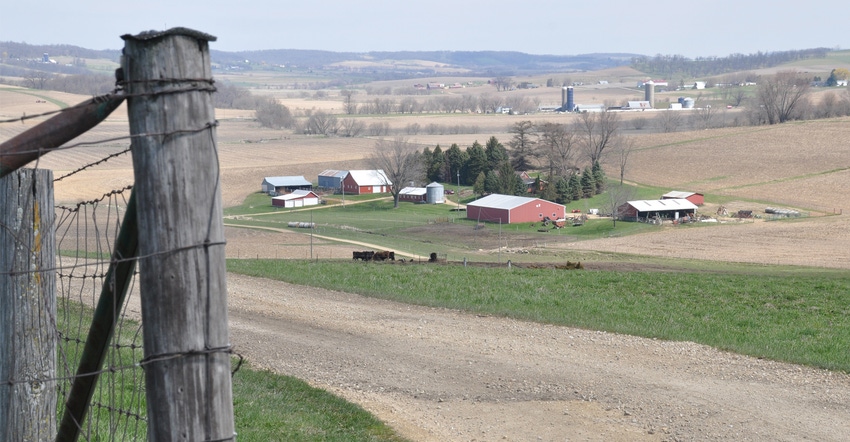May 1, 2017

What exactly is “estate planning”? To some, this phrase evokes images of massive wealth and a team of expensive professionals cleverly working to minimize a monstrous tax bill. If you have massive wealth, those images might belong in the picture. But estate planning is far more than tax avoidance. And for people whose estate will never reach $4 million, tax avoidance is not a priority at all.
Estate planning is actually for everyone who cares about their family and their farm. Regardless of whether your assets will reach $4 million, estate planning is taking formal, proactive steps to:
• preserve control of your affairs as long as you can
• provide for you, your family and the management of your farm in the event of your mental incapacity
• purposefully direct your various assets to the people you want, so they’ll receive it when you want with the protections you want
• protect your people and property from unnecessary taxes, expenses and catastrophes
With this general definition in mind, here are some common questions to consider.
When do I need to do estate planning? Obviously, you must plan while you can: before you die or become incapacitated. No one knows when the accident, heart attack or stroke is going to happen. But it is more complicated than that, because some goals cannot be achieved unless you start well in advance. The best strategies for reducing estate taxes or protecting the farm from catastrophic health care expenses require years to fully implement. So don’t wait until the last minute.
Get more INSIGHT: Download Farm Succession Planning now!
Is my estate large enough? First, it is probably bigger than you think. It includes everything that would be received by anyone if you died before you finish reading this article: your land, life insurance proceeds, IRA, vehicles, machinery, corporation or limited liability company. These are all part of your estate. If you have a multimillion-dollar estate, estate taxes effectively force you to plan. But do you really need to plan for a smaller estate? If your estate is large enough to make a significant impact on the people who will receive it, and you want that impact to be a completely positive, then you simply must do estate planning.
What documents will I need? Documents are tools. Simple tools work for simple jobs, more sophisticated tools are needed for more complicated jobs. So you need to define the job. In my experience, farmers never have simple objectives. They usually have specific priorities for their care and the management of the farm in case of incapacity. They want an efficient, private transfer of assets on death. If married, they want to provide for their surviving spouse and protect the farm from any future remarriage. They want to leave specific benefits for the farming son or daughter, such as buyout or renting options, and they want all heirs’ inheritances protected from catastrophes like future lawsuits and divorces.
To accomplish goals like these, you will want to start with an individually designed revocable trust, along with some ancillary documents, like powers of attorney and a will. The documents won’t work without proper follow-through, such as titling all assets in the trust, and naming the trust as beneficiary of IRAs and life insurance. Don’t leave anything out of the trust. Doing so puts your trustee, or executor, in an awkward situation, where the person is responsible for reporting all assets and paying any taxes, but without control of all assets. While the goals are specific and may be complicated, you keep the process simpler by fully funding your trust.
Why not a will instead of a living trust? Some of the goals mentioned above could be accomplished with either a living trust or a will. Not a simple will, understand, but a complicated will that requires as much legal drafting as any living trust. However, the living trust trumps a will in two important ways. A living trust is a more flexible document to plan privately for your disability, and it will facilitate a more private and efficient estate settlement process.
Curt Ferguson owns The Estate Planning Center in Salem. Learn more at thefarmersestateplanningattorneys.com.
About the Author(s)
You May Also Like






